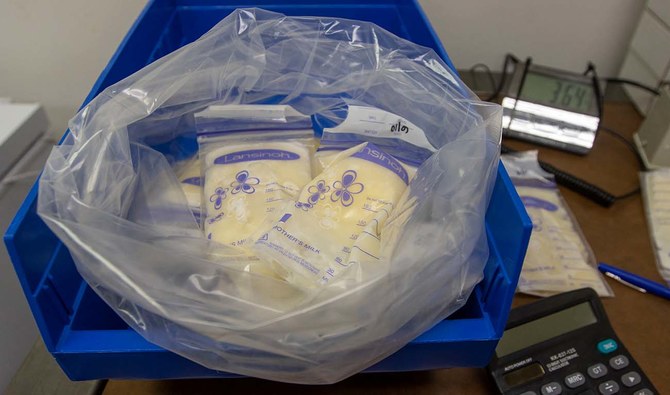ISLAMABAD: The Sindh Institute of Child Health and Neonatology (SICHN) said this week Pakistan’s first human milk bank established earlier this month had been suspended pending further guidance from the Council of Islamic Ideology.
A human milk bank, breast milk bank or lactarium is a service that collects, screens, processes, pasteurizes, and dispenses by prescription human milk donated by nursing mothers who are not biologically related to the recipient infant. For women who are unable to breastfeed or produce enough milk, pasteurized donor breast milk can be an effective approach to feeding.
SICHN earlier this month announced its human milk bank facility, Pakistan’s first, established in collaboration with UNICEF, describing it as a “significant milestone in maternal health.”
“A recent revised fatwa issued by Darul Uloom Karachi dated 16ht June 2024 has prompted us to discontinue the functionality of the Human Milk Bank. This decision is in compliance with the updated religious guidance and reflects our ongoing commitment to operate within the framework of Islamic jurisprudence,” SICHN said in a statement dated June 21.
“Moving forward, we will seek further guidance on this issue from both Darul Uloom Karachi and the Council of Islamic Ideology,” the statement added, referring to a religious body that advises the government on the compatibility of laws with Islam.
SICHN said the milk bank was initially set up after seeking and receiving a fatwa from the Darul Uloom Karachi, “which provided us with the necessary religious endorsement to proceed.”
“This fatwa was critical in ensuring that our efforts were in harmony with Islamic teachings, providing reassurance to the community and stakeholders involved,” the institute said.
The fatwa cited certain pre-conditions to establish the milk bank including that Muslim children should only be provided milk from Muslim mothers.
Iran is currently believed to be the only country in the Muslim world with a network of milk banks. In general, Islam makes the practice tricky. The opposition centers on a tenet called milk kinship, which states that a parent-child bond is formed when a woman gives milk to a baby who isn’t biologically related to her.
To avoid future incestuous marriages between so-called milk siblings, the tenet says, the foster relationship must be clearly delineated. Since milk bank donors are typically anonymous and the donations are often combined, the practice is rejected in most of the Muslim world.
















